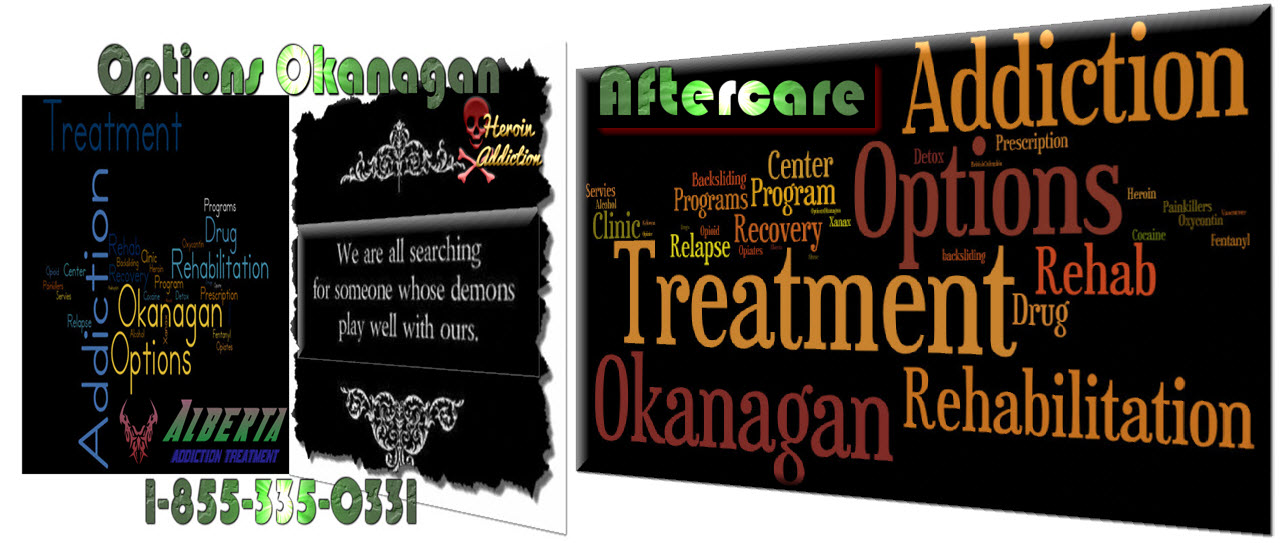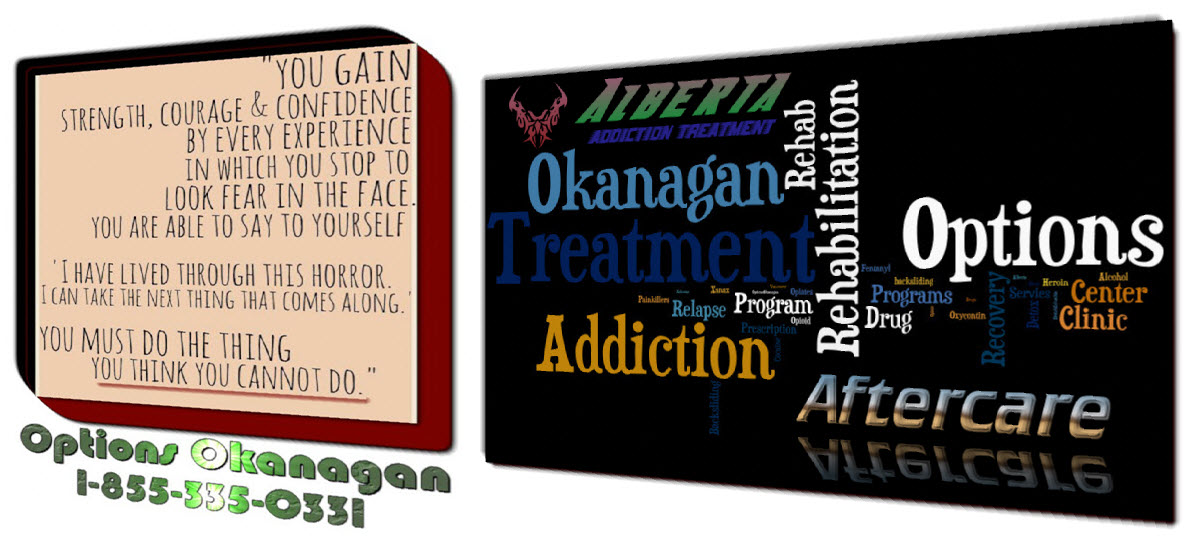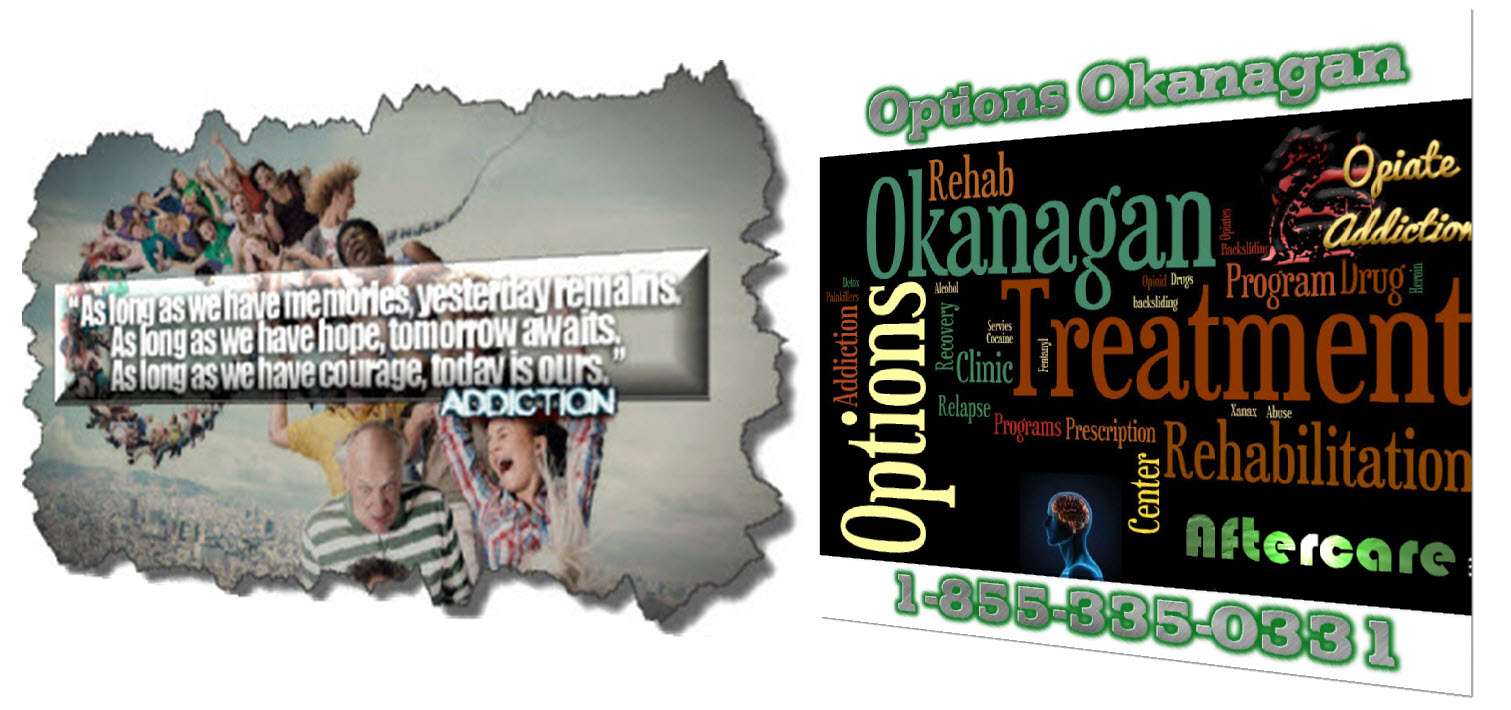How relapse is avoidable through aftercare and continuing care in Alberta and British Columbia : What a individual should know about aftercare and continuing care – Options Okanagan Treatment Centers in Kelowna, British Columbia treating drug, opiate, fentanyl, heroin and alcohol addiction and recovery.
Many people consider the initial part of overcoming addiction to be the most difficult issue associated with the recovery process. When you really stop to think about it, however, the hardest part of the process often comes after the initial treatment is over.
One of the difficulties that many people struggle with during that time is the possibility of a relapse. To overcome the possibility, they need to be close to their family members and that also includes their new family that they have chosen among the recovering individuals who went through the process with them. These are the people that they often turn to when they fear a relapse is imminent.
5 contributing factors to relapse have been identified in a study and include the following:
1. Thinking negatively
2. Lack of motivation
3. Conflicts that take place with family members or other people
4. Not following through on advice from counselors and doctors
5. Holding onto negative emotions and high levels of stress
You might even notice a similarity between factors that lead to a relapse and what may lead to issues with chronic disorders, such as diabetes, such as:
1. Not sticking with medications, diet or behavioral changes.
2. Living in poverty
3. A lack of family support
4. Numerous health disorders occurring at the same time
Something that addicts need to learn is to avoid triggers that could lead to a strong desire for alcohol or drugs. Triggers are sometimes unavoidable so the right mindset needs to be established to overcome the cravings that could otherwise be overpowering. Learning those skills is part of a quality treatment program. It needs to be taken a step further, however, and an aftercare program (long-term recovery) needs to be considered as well.
One aftercare counselor who is highly reputable in his field is certain that aftercare is necessary as a continuing process to help individuals survive. According to this aftercare counselor, when somebody leaves a treatment program and does not continue to attend meetings or stick with their counselor, they will quickly return to their old addiction. The temptation of alcohol and drugs is just too strong for them to resist.
At a Canadian College of medicine, a leading counselor agrees with the aforementioned advice. He says that an aftercare program can’t really be underestimated for an individual to be successful when dealing with any type of addiction. In fact, he refers to it as being the key to success.
In Vancouver, a counselor who is in charge of a recovery center also has much to say on the subject. At this particular center, participants can gather for mutual friendships and assistance along with receiving tangible assistance and even job-training. This type of program is designed to help individuals to get back to their life again after they have gone through the recovery process. He feels as if peer support is a critical element in the recovery process. In the organization where he works, efforts are not limited to only a 12 step program that helps addicts through dialogue that is focused on the addiction. Rather than focusing on the addiction, it seeks out a solution.
Many people look at them as a potential replacement for AA but they don’t intend on replacing the 12 step program. When individuals are in a recovery process for the long term, they have different needs and go through different stages. Commitment plans for recovery have been developed so the addicts can deal with the situation in the best way possible. Rather than being a shortsighted view to recovery, it provides a lifetime opportunity for recovery.
Many services are offered to help addicts get back to their life again, including skill training, educational services, mentoring, recovery centers and peer counseling. These are designed to help individuals for the long-term so they can maintain the recovery and avoid a relapse. The Recovery Community Services Program (RSCP) is offered through the federal government. Many faith-based and community-based programs are funded by the RSCP. As a result, those smaller programs are able to help individuals to find jobs, housing and continuing their education along with providing drug-free and alcohol-free social activities.
Options Okanagan Opiate and Alcohol Treatment Centers in Kelowna, Salmon Arm and Vancouver, British Columbia – Men and Women are recovering and healing from Alcohol and Drug Abuse at our treatment center here in the Okanagan right now.
Our unique and distinctive Opiate Drug and Alcohol treatment program allows men and women to come in from Calgary as well as Edmonton as we offer airport pickup.
Numerous clients come to us from Vancouver, Calgary and Edmonton and other locations in Alberta and even other provinces for Opiate addiction treatment, heroin drug treatment, many other drug and alcohol addictions for rehabilitation because of the uniqueness of our treatment center.
Our Treatment Location:
Options Okanagan Drug and Opiate Treatment Center
551 Sherrydale Crescent, Kelowna, British Columbia, V1V 2E6
Toll Free Phone Number : 1-855-335-0331



